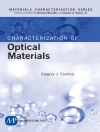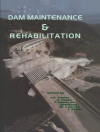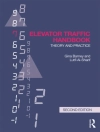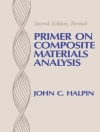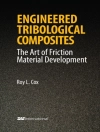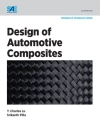The rate of development in modern digital computer systems and software has led to an almost insatiable demand for ever increasing storage capacities. In response to this demand the memory manufactures and, in particular the disk drive manufacturers have over the last decade or so come forward with spectacular increases in storage capacities and densities. The ?eld of magneticmemoryhasbeenonthefrontierofadvancedmaterialsdevelopment for many years. The momentum now gained in the technology is such that storage densities are increasing at something like one hundred percent per annum and this rate may still be rising. Over the past decades dramatic progress has been made in magnetic storage systems. In the past few years 2 areal densities, currently above 50 Gbits/in , have doubled every 10 months 2 and are expected to reach 100 Gbits/in in the near future. The price per megabytehasdecreasedbyafactorof10inthelastdecadeandispredictedto drop to USD 0. 05 ber megabyte within the next 10 years. The reason is that the intensive investigations in the ?eld of the nanoscale magnetic materials promote to the great progress in various kinds of the magnetic storage media (computer ?oppy disks, sound/video tapes, etc. ). Among the magnetic storage devices, the hard disk drive (HDD) is the dominant secondary mass storage device for computers, and very likely also for homeelectronicproducts in thenear future. The HDDis an integration of many key technologies, including head, medium, head-disk interface, servo, channelcoding/decoding, andelectromechanicalandelectromagneticdevices.
Cuprins
U-H-D Recording Media.- Materials Challenges for Tb/in2 Magnetic Recording.- Scanning Hall Probe Microscopy: Quantitative & Non-Invasive Imaging and Magnetometry of Magnetic Materials at 50 nm Scale.- Self-Assembled Fe Pt Nanoparticle Arrays as Potential High-Density Recording Media.- Magnetophotonic Crystals.- Nano-Patterned Media.- Selective Removal of Atoms as Basis for Ultra-High Density Nano-Patterned Magnetic and Other Media.- Magnetization Reversal Studies of Periodic Magnetic Arrays via Scattering Methods.- Finite-Temperature Simulations for Magnetic Nanostructures.- Functional Elements of MRAMs.- The Influence of Substrate Treatment on the Growth Morphology and Magnetic Anisotropy of Epitaxial Cr O2 Films.- Antiferromagnetic Interlayer Exchange Coupling Across Epitaxial Si Spacers.- Magnetic Tunneling Junctions — Materials, Geometry and Applications.- Magnetic Anisotropies in Ultra-Thin Iron Films Grown on the Surface-Reconstructed Ga As Substrate.- GMR Read Heads and Related.- New Domain Biasing Techniques for Nanoscale Magneto-Electronic Devices.
Despre autor
Bekir Aktas, Faik Mikailov – Gebze Institute of Technology group has long-time experience in Ferromagnetic Resonance studies of magnetic anisotropies in thin ferromagnetic films and nanostructures, including GMR systems. The group has successfully held 6 national projects sponsored by DPT (National Technology Foundation of Turkey) and TUBITAK (Turkish Council for Scientific and Technical Research), which allowed to supply Physics labs of GIT by firmware equipment and components with nominal value more than 1.5 M€. The group leader, Prof. B.Aktas has published more than 70 papers in refereed journals, he has edited (together with Dr. Faik Mikailov) the Springer-Verlag Lecture Notes in Physics volume (No 593, 2002) on ‘Nanostructured Magnetic Materials and their Applications’ and Kluwer Academic Publishers, NATO Science Series II: Mathematics, Physics and Chemistry volume (No 143, 2004), organized (together with Dr. Faik Mikailov) the International Workshops on Nanostructured Magnetic Materials and their Applications, NMMA-2001 (Gebze/Istanbul), NATO ARW ‘Nanostructured Magnetic Materials and their Applications’, NMMA-2003 (Istanbul), and International Conference in Nanoscale Magnetism (ICNM-2005) in Gebze. Personal information is available from the WEB site: http://www.gyte.edu.tr/default.asp?sira=218&tip=51&sayfa=1&hoca=2181
Lenar Tagirov –Since 1998 he is a Professor at the Theoretical Physics Department of KSU and since 2004 is Director of the Research Laboratory ‘Physics of Magnetic Nanostructures’ at KSU. L.R. Tagirov was a Principal Investigator of three successfully finished national grants, he is the leader of RFBR project, participating also in the international projects REC-007 (Kazan) sponsored by CRDF (USA). Prof. L. Tagirov, with theoretical part of the group, is involved in the project ‘Ballistic Magnetoresistance in thin-film nanocontacts’ funded by EC. He has developed an original approach to calculateelectric conductivity and magnetoresistance (MR) of tiny contacts made of ferromagnetic metals and proposed the concept of Quantum Spin Valve. He has authored/co-authored to-date more than 70 refereed journal papers, he has co-editored the Kluwer Academic Publishers volume ‘Nanostructured Magnetic Materials and their Applications’, NATO Science Series II: Mathematics, Physics and Chemistry(v. 143, 2004), organized NATO ARW NMMA-2003 at Istanbul, 1-4 July 2003 (co-director from Partner Countries) and entered Organization Committees of few International scientific meetings (NT-32, Kazan, Russia; NMMA-2001, Istanbul, Turkey; RTNM-2003, Gebze, Turkey, NDFA-2004, Kishinev, Moldova). Personal information is available through the KSU WEB site: http://www.ksu.ru/


